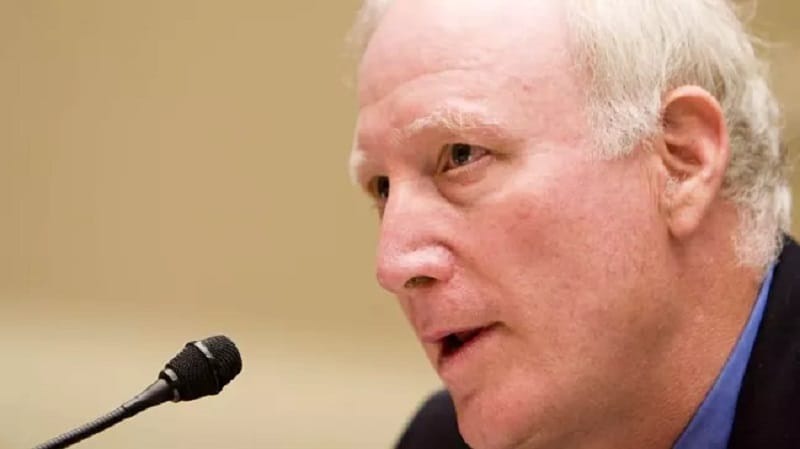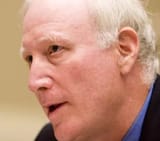Randy May: Reform the Affordable Connectivity Program Before Extending It
Continuing the ACP program can be justified, but only if it is meaningfully reformed to render it more fiscally responsible.

As part of the Infrastructure Investment and Jobs Act in 2021, Congress appropriated $14.2 billion to create the Affordable Connectivity Program, or ACP, to provide lower-income households with a monthly subsidy of up to $30 ($75 on tribal lands) that may be applied to acquire internet service from any participating internet service provider.
The ACP, which began operating in early 2022, is overseen by the Federal Communications Commission.
Absent an additional appropriation from Congress, ACP funds are expected to run out as early as this April. In anticipation of the exhaustion of the available funds, on Feb. 8, the FCC stopped accepting new enrollments. As of that date, there were 23,269,550 households enrolled in the program. They will continue receiving benefits only until the appropriated funds are drained.

As you might expect with any government benefits program threatened with cutbacks or, as in this instance, elimination, there’s a vigorous lobbying campaign going on right now to secure more funds from Congress. Various legislative measures are being considered to accomplish this by attaching an appropriation for the program to a piece of “must pass” legislation. But with the national debt at $34 trillion and growing every minute, now $102,000 for every single person in America, many in Congress are understandably reluctant to extend the program.
The ACP needs to be meaningfully reformed
So, what to do? To my mind, continuing the ACP program can be justified, but only if it is meaningfully reformed to render it more fiscally responsible. This can be accomplished by adopting a considerably more restrictive eligibility requirement and further measures to reduce waste and fraud in the program.
On the positive side of ACP’s ledger, there’s little doubt that, for most of us, access to a high-speed broadband connection enhances the quality of our lives. The ability to take advantage of various educational opportunities, apply for jobs, interact with government websites, participate in community activities, use social media, or just connect with family and friends usually requires adequate broadband access.
And there’s no doubt that the lack of a broadband connection puts low-income persons unable to afford one at a disadvantage. So, like government benefit programs that provide subsidies to low-income persons for securing food, housing, or energy assistance, a properly conceived and operated Affordable Connectivity Program can be an important “safety net.”
The ACP has features that render it superior to other subsidy programs
Moreover, the ACP has features that render it superior to some other subsidy programs targeted at low-income persons, including others in the telecommunications area. For example, because the ACP monthly benefit takes the form of a voucher that can be used to acquire broadband service from any participating ISP, consumers are empowered to choose the provider with a plan that best suits their needs. And this exercise of choice by consumers should stimulate further competition among participating ISPs, especially if some of the smaller providers are able to land new customers.
But the ACP needs some fixes to ensure it is operating on a fiscally responsible, sustainable basis before it is extended. The current eligibility threshold is set at 200% of the federal poverty guidelines, presently $62,400 in income for a household with four persons. Or a household may be eligible if a member of the household participates in any of several other programs, such as SNAP or federal housing assistance.
There is substantial concern in Congress, especially among Republicans, that due to the generous eligibility criteria, thousands of persons are receiving the ACP benefit who don’t really need it. As Sen. Shelley Moore Capito, R-W.V., put it recently: “I think we need to have accountability to make sure that the people who are receiving this benefit are the ones that actually cannot pay, and would not pay otherwise had they not had the extra money to be able to afford this.”
Eligibility for participation in the FCC’s Lifeline program, a preexisting and still ongoing FCC program subsidizing telecommunications access for low-income households, which should be ended if the ACP is extended, is set at 135% of the federal poverty level, presently $42,120 for a four-person household. Especially given the severe budget constraints, there is no reason why the ACP eligibility criterion should exceed 135% of the federal poverty level. This will still protect those truly in need while enabling whatever funds Congress may make available last longer. And it will help sustain public support for the program.
Moreover, if Congress extends the ACP program, it must incorporate strong independent accountability and transparency requirements to facilitate congressional oversight aimed at minimizing any waste and fraud in the program. A January 2023 Government Accountability Office report concluded that the FCC had not taken sufficient steps to detect and prevent fraud, and it detailed instances of inactive subscribers receiving benefits, false reimbursement claims being processed, and failure to deenroll ineligible subscribers.
Considering the importance of internet access to so many aspects of our everyday lives, a case can be made that the Affordable Connectivity Program is a worthwhile “safety net” program that should be extended. But only if the eligibility threshold is reduced to 135% or less of the federal poverty level and stringent safeguards are put in place to prevent waste and fraud.
And if Congress reforms the ACP program, it will constitute an important precedent demonstrating that “safety net” programs can indeed be reformed.
Randolph May is president of the Free State Foundation, a free market-oriented think tank in Rockville, Maryland. This piece was first published in the Washington Examiner on March 5, 2024, and is republished with permission.
Broadband Breakfast accepts commentary from informed observers of the broadband scene. Please send pieces to commentary@breakfast.media. The views expressed in Expert Opinion pieces do not necessarily reflect the views of Broadband Breakfast and Breakfast Media LLC.











